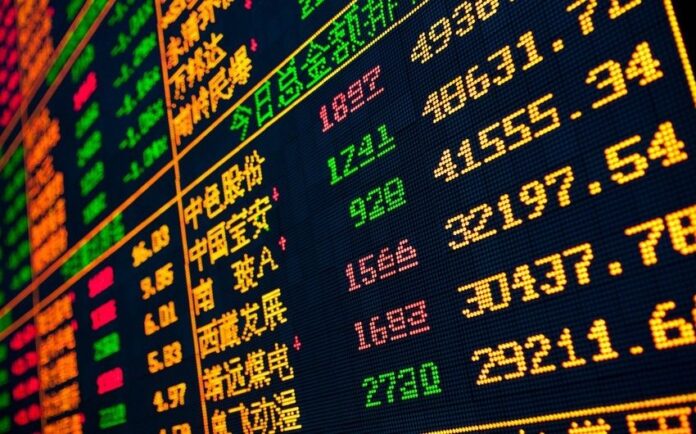The Shanghai Stock Exchange experienced a sudden fall this week, mirroring heightened global tensions after aggressive rollouts of tariffs by former U.S. President Donald Trump. Asia’s markets, including China’s major index, are stumbling after it was announced that the United States will be charging China a whopping 104% tariff on Chinese imports from Wednesday.
This rapid increase in trade barriers, coupled with no indication of negotiations with China, has sent investors into panic. The Shanghai index plunged sharply as China prepares for what experts have dubbed a trade war escalation with no short-term solution at hand.
104% TAriff on Chinese Imports: A Major Shock to Asia;s Markets
Trump’s new round of tariffs is not only aimed at China. Dozens of other country-specific tariffs are set to go into effect, but the 104% tariff on Chinese products is the most draconian. The U.S. administration has confirmed that the tariffs will go into effect just after midnight.
U.S. Stock Markets in Decline: S&P 500 Struggles
The S&P 500 fell for a fourth day in a row, closing below 5,000. It is a level it hadn’t seen in nearly a year. The index has now declined 18.9% from its February high, on the brink of a bear market. U.S. firms have collectively lost $5.8 trillion in market value since Trump made his announcement last Wednesday.
Also read: Social Security Payment on April 9 – Will You Get a Bigger Check?
Asia’s Market Reaction: NIkkei and Shanghai Hit Hard
Japan’s Nikkei index kicked off with a steep sell-off, and others in Asia went the same way. China’s markets, particularly the Shanghai index, took the brunt of the beating since manufacturers threatened reducing profits and added uncertainty. The impending tariff hike has led certain companies to seek to relocate some operations abroad
In response to increasing instability, Citi has reduced its 2025 GDP estimate for China from 4.7% to 4.2%. As trade tensions rise, China’s economy risks a slowdown.
China Responds: Rejecting U.S. ‘Blackmail”and Preparing Retaliation
China has pushed back in defiance. Officials have declined to give in to U.S. pressure, labeling the tariffs “blackmail” and vowing to retaliate. Beijing hasn’t said what it will do next, but it has suggested retaliatory tariffs and long-term economic plans to decrease dependence on U.S. trade.
Meanwhile, Washington has stated that it will not prioritize talks with China. Instead, Trump’s team is focusing on trade discussions with allies like South Korea and Japan. Talks are also scheduled with Italy in the coming week.
Global Consumers Prepare for Price Increases
On the American side, the effect is rapidly spilling over from stock markets. Three in four Americans believe prices will go up, according to a Reuters/Ipsos survey. Retailers are already responding—some are holding off on orders, freezing hiring, and gearing up to impose surcharges.
Micron, a major chipmaker, announced it will impose tariff-related fees. Clothing retailers are adjusting strategies, and prices for consumer goods are set to spike. For example, sneakers made in Vietnam could rise from $155 to $220 once new tariffs hit.
“I’m buying double of everything—beans, canned food, flour—before prices go crazy,” said Thomas Jennings, a shopper in New Jersey.
U.S. Tariffs Stir Global Trade Tensions: EU and Canada Respond
The European Union, already beset by previous U.S. metal and automobile tariffs, now considers 25% countertariffs on U.S. imports such as soybeans and sausages. Canada and Mexico, while excluded from the new round, still have older trade restrictions.
Pharmaceutical manufacturers in Europe cautioned that Trump’s measures could transfer production from Europe to the United States, bringing long-term damage to the international trade environment.
What Lies Ahead
Trump has threatened even more tariffs, including on imported drugs, saying this will return manufacturing jobs to the U.S. But many worry these policies will send the global economy into a long recession.
For the time being, the Shanghai index keeps falling. As trade wars escalate, the world is closely observing. Markets are unstable, and investor sentiment is rattled. Until there is a clear direction ahead, uncertainty will rule global trading floors.








